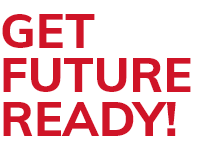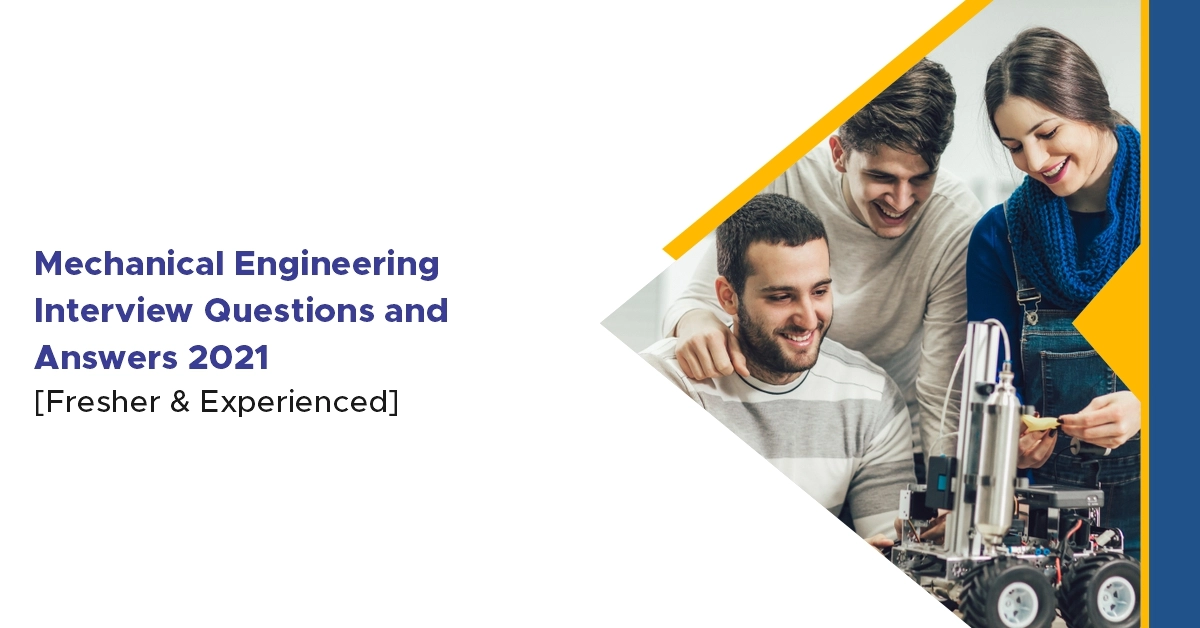Mechanical Engineering is the branch of study that deals with the design, development and construction of machines, sensors, tools and engines. People with a degree in mechanical engineering usually find employment in establishments that deal with engineering services, research and development.
Mechanical engineers are responsible for designing and manufacturing different types of products. These could be anything from medical devices to batteries. They also handle big projects like the construction of elevators, escalators and conveyor systems.
In India, the engineering sector is the largest of the industrial sectors. It accounts for 27% of the production units in the country. In the last few years, the country has seen a spurt in industrial activities and investments. It has an important role to play in the economy too because it is directly related to the manufacturing of goods and infrastructure. According to industry reports, major international players are taking a keen interest in India’s engineering sector because of the government’s decision to allow 100% FDI in this field.
In this blog, we will focus on the interview questions that both freshers and people with experience need to handle while appearing for Mechanical Engineering jobs.
Mechanical Engineering Interview Questions for Freshers
Let us take a look at some of the common questions posed by interviewers during interviews for Mechanical Engineering jobs.
1. What is the meaning of the term Greenfield Project?
Ans: A Greenfield Project refers to a project that has been built from scratch and has been built in a way that does not cause pollution.
2. Can you name the alloy of tin and lead?
Ans: The alloy of tin and lead is called solder and is primarily used to make electrical joints.
3. What is meant by pitting?
Ans: Pitting is when there is a small hole in the metal due to corrosion.
4. Can you name the boiler that doesn’t need a steam drum?
Ans: The supercritical pressure boiler doesn’t need a steam drum.
5. What are the different types of brakes?
Ans: The various types of brakes are:
- Hydraulic brakes
- Electric brakes
- Mechanical brakes
6. What is knurling?
Ans: Knurling is the process of creating a pattern on a bar that can be used as a handle.
7. What is called engineering drawing?
Ans: It is the technical document that is used to transfer technical details and requirements.
8. Identify the different types of screws.
Ans: The different types of screws are: Screw Head, Screw Thread Type and Screw Drive Types.
9. What does GD&T stand for?
Ans: GD&T stands for Geometric Dimension and Tolerance.
10. Can you give the definition of coal?
Ans: Coal is a sedimentary rock that contains elements like sulfur, oxygen, hydrogen and nitrogen.
11. What is the full form of AFBC?
Ans: The full form of AFBC is Atmospheric Fluidized Bed Combustion.
12. What do you mean by Gravity?
Ans: It is the proportion of the mass of a substance to the density of a reference substance.
13. What do you mean by latent heat?
Ans: It is the amount of heat that changes the property of a material without increasing its temperature.
14. Explain case hardening.
Ans: It is the method of using low carbon steel for making the outer surfaces harder.
15. What is a periscope?
Ans: It is an optical instrument used for viewing objects above the level of sight. It is mostly used in submarines.
16. What are the different types of gate valves?
Ans: The different types of gate valves are
- Parallel disk gate
- Single disk gate
- Wedge Gate
17. How can we see the pipes behind the wall?
Ans: We can do so by using radio waves.
18. What is FOF in piping design?
Ans: FOF stands for Face of Flange.
19. What is extrusion?
Ans: Extrusion is the process by which a metal bar is elongated by pulling it through a mandrel.
20. What are the two types of cooling towers?
Ans: The two types of cooling towers are: Natural draft and Mechanical or induced draft.
21. What is Ferrite?
Ans: Ferrite is a magnetic iron rock.
22. What are the vital conditions of a perfect gas?
Ans: The vital conditions of a perfect gas are:
It needs to satisfy the state equation.
The specific heat should remain constant.
23. What is enthalpy?
Ans: Enthalpy is the heat content of a thermodynamic system.
24. What do you mean by torque?
Ans: Torque is the measure of force needed to rotate an object.
25. What does superheating mean?
Ans: Superheating is the process in which the fluid’s temperature is increased along with the pressure.
-
Mechanical Engineering Interview Questions for Experienced
The following are samples of questions that are asked to candidates with experience for a Mechanical Engineering job.
1. Can you differentiate between thermodynamics and heat transfer?
Ans: Thermodynamics changes one equilibrium state to another. Heat transfer is a non-equilibrium process.
2. Why is Nitrogen used in welding?
Ans: Nitrogen is used in welding to stop oxygen and air from entering the fused metal while welding.
3. Which gases can be used in welding instead of nitrogen?
Ans: Nitrogen can be replaced with argon, helium and carbon dioxide.
4. Why does white smoke come out in two-stroke locomotive engines?
Ans: White smoke comes out of two-stroke locomotive engines when the engine is running out of fuel.
5. What is a turboprop engine?
Ans: A turboprop engine is a gas turbine engine used to power propellers. It is an efficient engine for aircraft designs.
6. How do you differentiate between a rocket motion and a projectile motion?
Ans: A rocket motion uses a rocket that can accelerate the motion and resist forces like gravity. A projectile motion is a force given to a body during its launch.
7. What do you mean by orthographic drawing?
Ans: An orthographic drawing is a 3D representation of any object. The 3 Faces are: Plan view, Front view and Side view.
8. Can you provide us with some examples of mechanisms from our day-to-day life?
Ans: Some instances that show the use of mechanisms in our daily lives are switching a light on or winding up a clock.
9. Can you expand ABFC?
Ans: The full form of ABFC is Atmospheric Fluidized Bed Combustion.
10. Can you tell the features used to identify mild steel, cast iron and high carbon steel?
Ans: While mild steel gives medium and dense sparks, cast iron gives out thick and short flashes. Meanwhile, high carbon steel gives long and thick sparks.
11. Do you know why a biological shield is used in nuclear plants?
Ans: The biological shield protects one from being exposed to neutron, gamma and beta radiation.
12. Now, can you explain what a nuclear reactor is?
Ans: A nuclear reactor is a plant that control, sustains and maintains the nuclear fission chain reaction, and thereby prevents exposure to radioactive radiation.
13. Why do you need to subject steel metal to heat treatment?
Ans: Heat treatment gives steel metal the desired properties.
14. Do you know why most gas containers are cylindrical?
Ans: Gas containers are built in a cylindrical shape to withstand high pressure. The sphere can withstand high internal gas pressure.
15. Is it possible to use motor oil in a hydraulic system?
Ans: You can use motor oil in a hydraulic system but it is best to avoid it. The reason is motor oil has elements that are harmful to seals and other parts of the hydraulic system.
16. Why do aeroplanes made out of thicker paper fly for a longer distance?
Ans: The reason is the thicker paper has a greater mass and potential energy. This changes into kinetic energy when it is in motion and gives the plane a larger lift.
17. What is the mechanical advantage of a double pulley?
Ans: A double pulley reduces the effort by half and moves the object by double the distance.
18. How are the pneumatic and hydraulic systems similar?
Ans: Both the systems use pressure to act on a particular application. The difference is that the pneumatic system uses gases like air or nitrogen and the hydraulic system uses oil or water.
19. What are Newtonian fluids?
Ans: Newtonian fluids are those that have a linear stress-strain relationship curve. It also passes through the origin.
20. Why do we not use galvanized pipes for steam lines?
Ans: We do not use galvanized pipes for steam lines because the high pressure and temperature of the steam cause the zinc coating on the pipe to flake off.
21. What is a disadvantage of supercritical boilers?
Ans: Supercritical boilers do not have a heavy drum for separating steam from the mixture of water and steam.
22. Can you explain a process flow diagram?
Ans: A process flow diagram describes the primary flow course. It shows major equipment, plant streams and the relationship between components.
23. What is a universal coupling?
Ans: A universal coupling is a pair of hinges connected by a cross shaft. The shaft is used to connect two shafts with axes inclined to each other.
24. What is the Otto cycle?
Ans: The Otto cycle is a thermodynamic combustion cycle. It is how heat engines turn gasoline into motion.
25. What type of computer programs does a mechanical engineer use?
Ans: A mechanical engineer uses software like Mathcad, MATLAB, SolidWorks and Autodesk Inventor.
Summary
Any candidate appearing for a Mechanical Engineer job interview will be tested on basic skills that they are supposed to pick up during their engineering programs. Therefore, one must go prepared about the potential new employer, the interviewer’s background and some talking points about yourself.
Institutions like NIET prepare you for these questions in advance. NIET’s Pyramid Finishing School first assesses the student’s skills and then works towards how to bridge the gaps.
They are trained in soft skills, technical skills, aptitude, verbal and non-verbal communication along with corporate and social etiquettes. Students passing out of NIET are ready to get into the profession of their choice.
The Career Management Cell has been developed as an interface for sharing resources, feedback and inputs about the placements. The CMC programmes are conducted by experienced industry professionals and professors who help students develop functional capabilities, leadership skills and cognitive thinking. NIET’s CMC handles campus placements of students graduating from all departments. https://www.niet.co.in/cmc-team.php
Apply today!
NIET’s mechanical engineering stream has one of the best course structures apart from other amenities. So, delay no more.


















